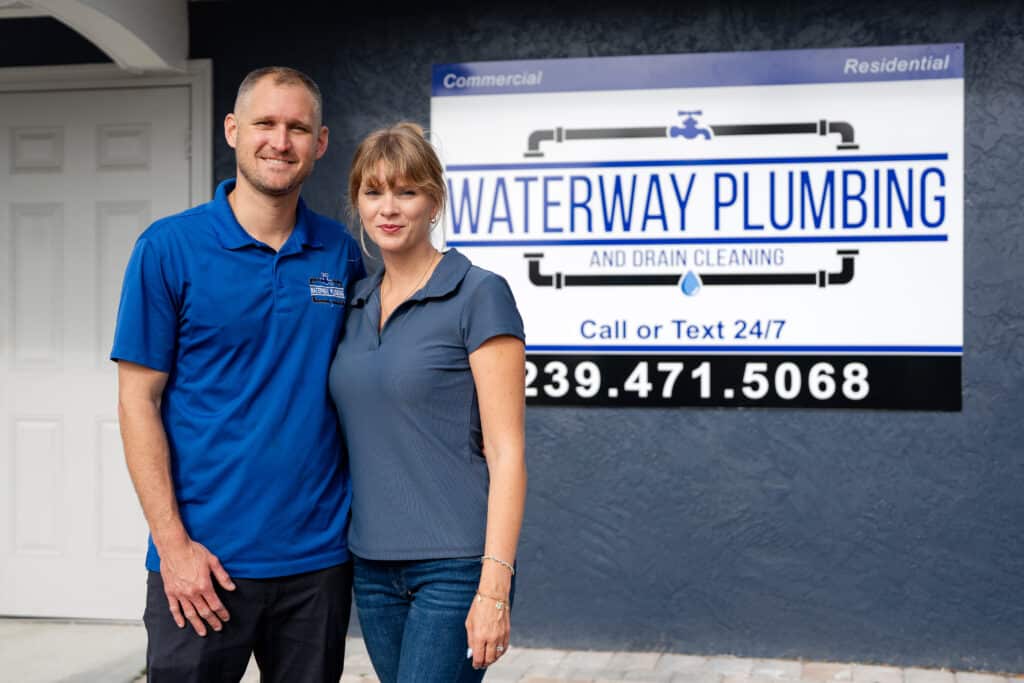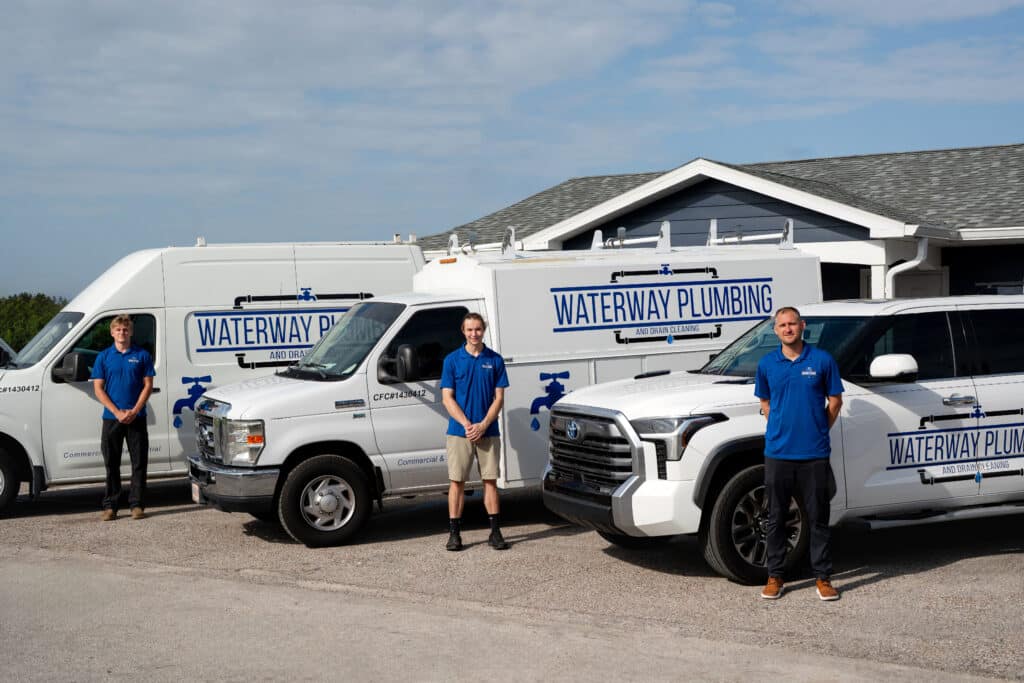Drain problems don’t just hit homes—they hit businesses too. When you’re running a restaurant, store, or any place with steady foot traffic, having drains that work the way they should can make or break your day. Grease builds up fast. Soap and grime collect quicker than you’d think. Whether it’s a slow drain in the kitchen, a backup in the bathroom, or smells that seem to come out of nowhere, commercial buildings face their own set of plumbing headaches.
That’s why regular drain maintenance matters more than many people realize. For businesses in Cape Coral and Fort Myers, especially during late summer when storms and heat can make water systems work harder, staying on top of drain systems helps keep operations smooth and customers safe. Let’s look closer at what usually causes these issues and what modern solutions exist to help keep everything flowing without constant interruptions.
Common Causes Of Commercial Drain Blockages
The daily wear and tear on commercial drains can be a lot. Unlike homes, businesses often have several people using the same restrooms or kitchens day after day. That adds up fast, and so does the stuff going down the pipes.
Here are some of the top reasons drains in commercial spaces get blocked:
- Grease and food waste: In restaurants or anywhere with a kitchen, these two are a big problem. Even with strainers in place, bits of food and grease get washed down the sink. Over time, grease cools and hardens inside the pipes, sticking to the walls and shrinking the space for water to flow.
- Soap and hair buildup: Breakrooms and public bathrooms can see dozens—or sometimes hundreds—of uses each day. That means lots of soap, dirt, and hair making their way into the drain. This mix creates a sticky slush that grabs anything else that flows past.
- Foreign objects: It’s not uncommon for things like paper towels, plastic wrappers, or even utensils to end up down a drain where they don’t belong. In busy places, accidents happen. People may not mean to flush something strange, but it happens often enough to clog things up badly.
- Heavy use: With constant water usage throughout the day, any small clog that might’ve been forming is more likely to become a bigger problem fast. There’s just more pressure on the system in commercial buildings.
One example comes from a café that had a dishwasher continually backing up. It turned out old cooking grease in the floors’ drainage was holding everything up. They had been trying to manage with frequent plunging and drain cleaner, but that only made the block harder to reach. Sometimes, you need more than just a surface fix.
Commercial properties especially benefit from a proactive approach. The moment you notice slow drains, weird smells, or water pooling around your floor drains, it’s time to dig deeper and figure out what’s clogging things up before it grows into a serious issue.
Modern Methods For Commercial Drain Maintenance
Fixing clogs isn’t just about plungers and short-term tricks anymore. The tools and techniques used today can clear buildup faster and safer than the old methods. Businesses need more than a one-and-done fix—they need ways to make sure it stays clear long-term.
Here are some of the modern ways commercial drain cleaning companies tackle the job:
- Hydro Jetting: This method uses strong streams of water blasted through a hose to scrub the inside walls of pipes. It’s great at breaking down grease, sand, food, and whatever else is stuck. Unlike rodding or snaking, hydro jetting actually cleans the pipe rather than just poking a hole through the plug.
- Video Inspections: Before going in with tools, many pros now send a small waterproof camera into the line. This gives them a clear picture of where exactly the blockage is and what caused it. It cuts down the guesswork and keeps the process more efficient overall.
- Bio-Cleaning Treatments: These are gentle but effective. Instead of harsh chemicals, some newer products use bacteria-based cleaners that eat away at organic waste. It’s safer for pipes and does a better job of preventing damage from corrosion or buildup over time.
- Scheduled Maintenance Plans: Rather than waiting for a clog to happen, a lot of businesses now work with plumbing experts to follow a regular maintenance plan. This might mean inspections, jetting every few months, or checking for early signs of trouble. It’s a smart way to keep drains from turning into a disruption at busy times.
Using modern tools like these helps businesses avoid plumbing emergencies that could shut down operations. Prevention is often the better path. Taking a few simple steps now can save you a lot of stress and cleanup later on.
Benefits Of Professional Drain Maintenance
When drain problems show up unexpectedly, they can throw off an entire workday. A slow restroom drain or flooded kitchen floor can shut down operations and create health hazards. That’s why staying ahead of plumbing problems is always better than reacting when it’s too late. Getting help from experienced professionals not only solves the current issue but also helps prevent bigger problems later on.
Commercial drain maintenance plays a big part in keeping business operations running consistently. Repairs tend to cost more when they’re last minute or done in a rush. With a regular plan in place, you can avoid expensive fixes and stop small clogs from becoming bigger ones. Quick response during a backup is important, but having a plan for consistent upkeep changes everything. It gives you more control over how your building operates instead of reacting when something breaks.
Another big advantage is air quality. Smelly drains result from trapped waste and bacteria. These odors can slowly spread and leave a bad first impression on customers. Regular cleanings flush away the buildup that causes those lingering smells, giving your team and customers a more pleasant place to be.
It also improves safety. Overflow and backups can create slippery floors and sanitation risks. Whether it’s a restaurant, gym, daycare, or showroom, you want a clean and dry space that keeps people safe. Commercial properties in Cape Coral and Fort Myers with older piping systems or seasonal usage especially benefit from inspections that go beyond just treating surface symptoms.
And let’s not forget legal requirements. Local health and safety codes often expect consistent plumbing care, especially in food service or hospitality. Failing an inspection can lead to more than just a headache—it can lead to real consequences. When systems are cleaned regularly and records are kept, it’s one less thing to worry about when regulators stop in.
Simple Tips To Keep Drains Clear Between Appointments
Even with professional service, your daily habits still matter. What goes into your drain affects how long things stay clean. Keeping a few basic routines in place makes a big difference.
Here are some simple practices that help reduce buildup between service visits:
- Flush with hot water weekly: Running hot water through sinks and floor drains clears out leftover soap, grease, or small debris. This helps stop early buildup before it hardens or sticks.
- Use drain strainers: Install strainers where possible, especially in kitchens and laundry areas. They catch food particles, coffee grounds, and hair—stuff that usually causes slow flow problems over time.
- Keep your team informed: Make sure employees know what’s safe to toss and what isn’t. Remind them that paper towels, sanitary products, and oils shouldn’t go down any drain, even if it seems harmless at the time.
- Rinse floor drains during general cleaning: A common mistake is forgetting floor drains exist until there’s a smell. Giving them attention when you mop helps cut down on odor and stoppage.
- Stick to a consistent check-up plan: Scheduling regular service puts your plumbing on autopilot. Waiting until a backup happens always ends up costing more in time and stress.
A quick tip from a small office once dealing with constant kitchen backups—simply placing clear signage around the sink reminding staff not to dump leftover coffee grounds or tea leaves cut clog incidents in half within a few weeks. Little reminders like that, combined with professional prevention, go a long way.
Keeping Your Plumbing Problems From Becoming Business Problems
It’s easy to forget about drains when they’re working. But the moment one clogs, backs up, or starts to smell, it’s impossible to ignore. That’s why treating drain care as a planned part of business upkeep saves time and frustration. For business owners in Cape Coral and Fort Myers, staying ahead of plumbing threats matters even more during the late summer heat and rainy periods, when drain systems can face extra strain.
Clear, functional drains support a clean workplace, a better customer experience, and reliable day-to-day operations. Whether it’s the kitchen in a busy diner or the utility room in a retail store, every part of the building depends on draining water and waste properly. Keeping those systems maintained isn’t just about repairs—it’s about peace of mind knowing things won’t fall apart when it matters most.
Regular maintenance, good practices, and early attention to slow drains all help extend the life of your plumbing system. And when small problems do pop up? They’re easier and cheaper to handle. Over time, that predictability brings serious value to your business and the people who depend on it each day.
To keep your Cape Coral business running smoothly, it’s important to stay ahead of plumbing problems with the right maintenance plan. Consider partnering with a commercial drain cleaning company for comprehensive solutions that address both urgent issues and routine upkeep. Waterway Plumbing & Drain Cleaning offers reliable services to help keep your commercial drains clear and your operations on track.




